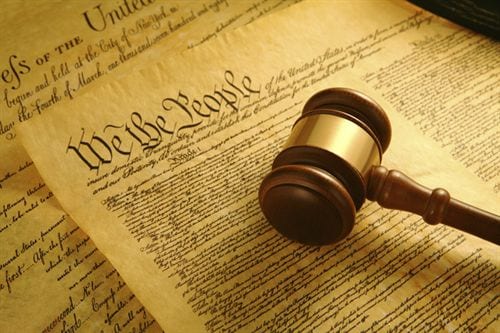In the Matter of the Care and Treatment of Jeffrey Chapman, South Carolina Requires Competent Counsel for Sexually Violent Predator Hearings (Op. No. 27705, filed 2/15/17).
A hugely important win for Mr. Chapman here, but with a dissent that argues the opinion invades the province of the legislature. Excellent work by David Alexander of the Office of Indigent Defense.
The State sought to keep Chapman civilly committed after the expiration of his prison sentence pursuant to South Carolina statute. It appears from the opinion that he received less than zealous advocacy in the hearing. Chapman’s lawyer did not make any motions during the two-day trial, and only objected once. Indeed, his attorney did not even insist that the presiding judge charge the law at the conclusion of the evidence as required by the SCRCP, Rule 51. It’s pretty clear the Court found this is a problem.
The Court held that Chapman was entitled to effective assistance of counsel during all stages of the SVP proceeding. It noted that the United States Supreme Court “repeatedly has recognized that civil commitment for any purpose constitutes a significant deprivation of liberty that requires due process protection.” Addington v. Texas, 441 U.S. 418, 425 (1979). Our statute in South Carolina provides that “At all stages of the proceedings…, a person subject to [the Act] is entitled to the assistance of counsel, and if the person is indigent, the court must appoint counsel to assist the person. S.C. Code Ann. 44-38-90(B). Implicit in this statutory guarantee of the right to counsel, the Court also rooted the right to effective assistance of counsel in the Fourteenth Amendment and the South Carolina Constitution.
But the question is how to vindicate that right since the SVP statute does not provide a mechanism for raising ineffective assistance of counsel claims? The Court held that an appellant wishing to raise ineffective assistance of counsel claim should do so by filing state habeas petitions and applying the Strickland standard (requires the appellant to prove counsel’s deficient performance and that appellant was prejudiced by the substandard performance). This is a different standard than is usually applied in state habeas petitions (which is “manifest injustice” and “shocking to the universal sense of justice”).
So this opinion brings some much-needed relief in this corner of the law since the quality of representation in these hearings has been extremely low for a number of years. Justice Few believes the Court exceeded its authority, and suggests how he thinks this kind of challenge should be raised. In his dissent he suggests that an SVP appellant should bring a claim of IAC in circuit court. Then, the circuit court judge would address the issue of whether the SVP’s right to annual review adequately protects the SVP’s due process rights regarding the effectiveness of his counsel. If the circuit court rules on that, and it is appealed, then the Court would be required to determine whether the court committed any errors. My objection to that is that it fails to consider how abysmal the quality of representation in this area really is. It would take an effective lawyer to even file the appeal alleging the ineffectiveness of the lawyer, and that won’t happen. I think it’s just further proof of the sorry state of this area of law that no one has, until this case, it appears, even raised the issue of the ineffective assistance of these court-appointed and virtually not-paid lawyers who have been handling these cases. In other words, I read this opinion as the Court finally putting its foot down and insisting that South Carolina citizens be adequately represented. It’s been a long time coming.

